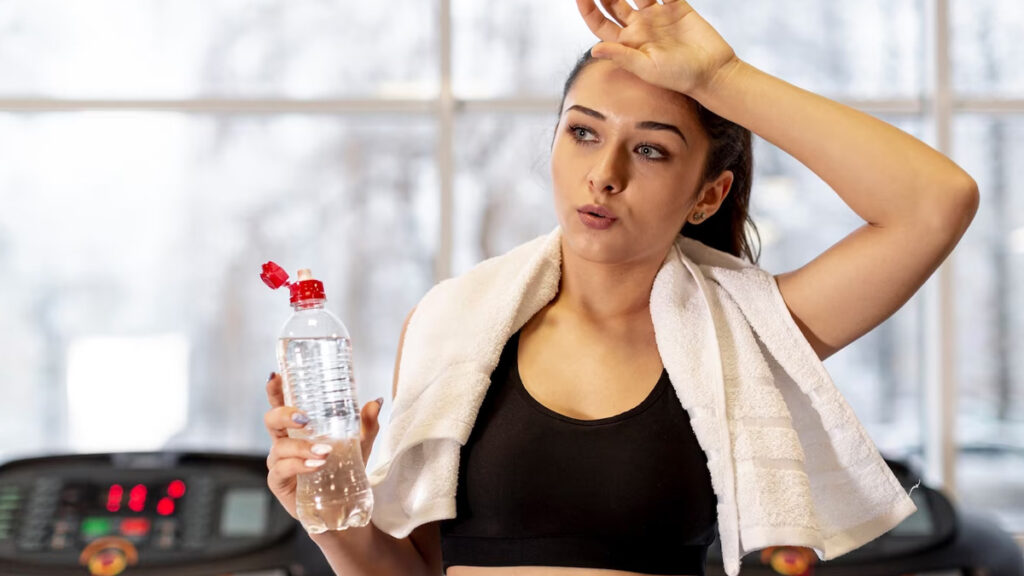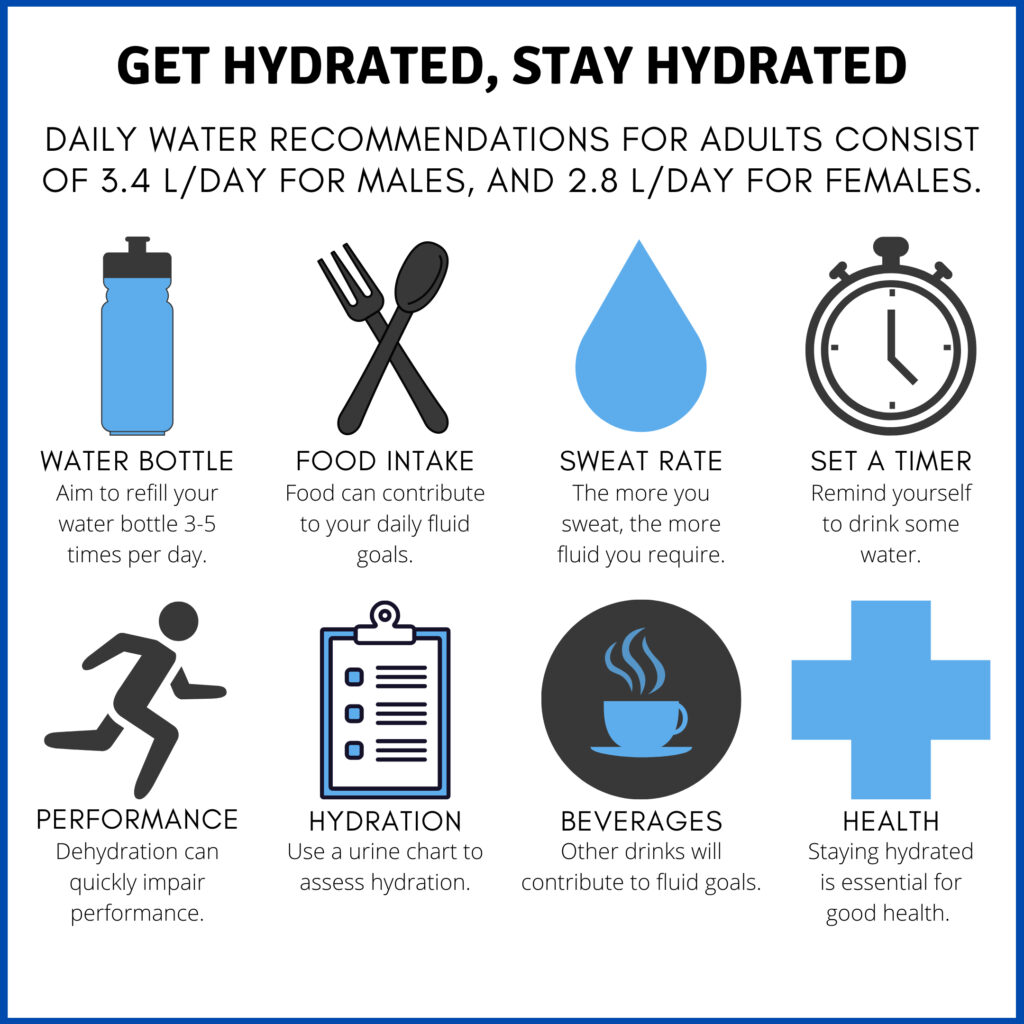Hydration is crucial for every biological function. From regulating body temperature to transporting nutrients, water plays a central role in athletic performance. Whether you are a professional athlete or a fitness enthusiast, maintaining hydration levels impacts endurance, strength, and recovery.
Many studies confirm that even mild dehydration negatively affects physical performance. Athletes often lose large amounts of fluids through sweat, especially during intense exercise or in hot environments. Failure to replenish these losses can result in decreased power output, reduced concentration, and a higher risk of injury.
This comprehensive guide explores the science behind hydration and exercise. You’ll understand why staying hydrated is not just beneficial, but essential for optimal workout performance.

Understanding Hydration Physiology
The Role of Water in the Human Body
Water constitutes approximately 60% of total body weight. It is involved in several physiological processes vital to exercise performance:
- Thermoregulation: Maintains core body temperature
- Nutrient Transport: Delivers oxygen and nutrients to working muscles
- Joint Lubrication: Reduces the risk of injury and discomfort
- Waste Removal: Assists in flushing metabolic waste during exercise
Proper hydration helps ensure that these functions operate efficiently, supporting peak athletic output.
Fluid Loss During Exercise
The human body continuously loses fluids through sweat and respiration. During exercise, these losses can escalate quickly. The rate of fluid loss depends on several factors:
- Exercise intensity and duration
- Ambient temperature and humidity
- Individual sweat rate
- Clothing and gear
Sweat loss can range from 0.5 to 2 liters per hour. Without adequate fluid replacement, athletes may experience hypohydration, leading to impaired cardiovascular function and thermoregulation.
Electrolyte Balance and Performance
Alongside water, sweat contains electrolytes like sodium, potassium, calcium, and magnesium. These minerals are essential for muscle contractions, nerve function, and fluid balance.
Loss of electrolytes without replenishment can cause:
- Muscle cramps
- Fatigue
- Decreased performance
- Risk of hyponatremia (dangerously low blood sodium levels)
Maintaining electrolyte balance is as important as replacing water during extended or high-intensity workouts.
Scientific Evidence Linking Hydration and Exercise Performance
Dehydration and Its Effects on Physical Performance
Multiple peer-reviewed studies confirm that dehydration diminishes exercise capacity. Even a 2% loss of body weight through fluid loss impairs physical and cognitive performance.
Effects of Dehydration Include:
- Consequently, reduced aerobic capacity and endurance
- Additionally, increased perception of effort and fatigue
- Moreover, impaired cognitive and decision-making skills
- As a result, increased heart rate and body temperature
- Furthermore, higher risk of heat-related illnesses
For endurance athletes, these effects become even more pronounced, often leading to slower race times and increased perceived exertion.
Cognitive Performance During Exercise
Staying hydrated is not only essential for muscles but also for the brain. Cognitive functions like attention, reaction time, and decision-making deteriorate when dehydrated. In sports requiring split-second decisions, this decline can be detrimental.
Research shows that dehydration affects mood states, increases perceived exertion, and lowers motivation—all factors that hinder workout performance.
Muscle Function and Recovery
Dehydration impairs muscle function; as a result, it leads to premature fatigue. Consequently, muscle strength, power, and endurance suffer when fluid levels are low. Additionally, dehydration slows the recovery process by reducing blood flow, thereby delaying nutrient delivery and waste removal.
Moreover, athletes often overlook the importance of post-workout hydration. However, rehydrating properly after exercise is critical for muscle repair and recovery. Therefore, prioritizing fluid intake both during and after workouts supports optimal performance and faster recovery.
Importance of Pre-Workout, Intra-Workout, and Post-Workout Hydration
Pre-Workout Hydration Strategies
Proper hydration starts long before you hit the gym. Entering a workout already dehydrated increases strain on the cardiovascular system and reduces performance.
Best Pre-Workout Hydration Practices:
- Consume 16-20 ounces of water 2-3 hours before exercise
- Drink an additional 8 ounces 20-30 minutes before starting
- Avoid excessive caffeine or alcohol pre-workout as they can contribute to fluid loss
Hydration During Exercise: Intra-Workout Needs
Sustaining fluid levels during exercise is critical, especially for workouts lasting longer than 60 minutes or performed in hot environments.
General Guidelines:
- Drink 7-10 ounces of fluid every 10-20 minutes during exercise
- Include electrolytes for prolonged activities (over 90 minutes)
- Monitor your sweat rate to customize hydration needs
Benefits of Proper Intra-Workout Hydration:
- Maintains blood volume and cardiac output
- Regulates body temperature
- Reduces the risk of muscle cramps
- Sustains energy levels and concentration
Key Points to Remember:
- Intra-workout hydration prevents performance drops
- Electrolytes are vital for prolonged activities
- Monitor thirst cues but do not rely solely on them
Post-Workout Hydration and Recovery
Post-exercise rehydration is essential to replace fluid and electrolyte losses. The recovery process accelerates when muscles and organs receive adequate hydration.
Best Practices for Post-Workout Rehydration:
- Drink 20-24 ounces of water for every pound lost during exercise
- Include a sodium source to enhance fluid retention
- Consider sports drinks if the workout was long or intense
Rehydration improves muscle protein synthesis, enhances glycogen replenishment, and reduces post-workout soreness.

How Different Types of Exercise Affect Hydration Needs
Endurance Sports
Endurance activities such as long-distance running, cycling, or triathlons place high demands on hydration. Prolonged fluid losses increase the risk of dehydration and electrolyte imbalances.
Consequences in Endurance Events:
- Drastic performance declines
- Higher risk of heat exhaustion and heatstroke
- Impaired cognitive function impacting pacing and strategy
Athletes in endurance sports must follow structured hydration plans, often using electrolyte solutions to maintain balance.
Strength and Resistance Training
While strength training typically causes less sweat loss than endurance sports, hydration remains critical.
Impacts of Dehydration on Strength Training:
- Decreased muscle strength and power output
- Increased risk of joint injuries due to reduced lubrication
- Impaired focus leading to poor form
Water supports blood flow, nutrient delivery, and muscle function, which are essential during heavy lifts.
High-Intensity Interval Training (HIIT)
HIIT sessions combine bursts of intense effort with short recovery periods. This format elevates body temperature quickly, increasing fluid and electrolyte loss.
Key Hydration Challenges During HIIT:
- Rapid dehydration due to elevated sweat rates
- Early onset of fatigue impacting power and endurance
- Increased risk of cramps and dizziness
Ensuring hydration before and during HIIT sessions helps maintain intensity and prolongs workout capacity.
Environmental Factors That Impact Hydration
Exercise in Hot and Humid Conditions
Exercising in the heat accelerates fluid loss through sweat. High humidity levels reduce sweat evaporation, limiting cooling mechanisms and raising core temperature.
Risks Associated with Heat and Humidity:
- Heat exhaustion
- Heat stroke
- Severe dehydration
- Decreased endurance capacity
Adapting hydration strategies for these conditions is non-negotiable. Athletes should consume fluids more frequently and prioritize electrolyte intake.
Cold Weather Hydration
Cold environments may reduce the perception of thirst. However, fluid loss through respiration remains significant. Additionally, heavy clothing can increase sweat rates.
Hydration Considerations for Cold Climates:
- Drink fluids even without feeling thirsty
- Use warm fluids to prevent chilling
- Balance water with electrolytes if sweating heavily
Ignoring hydration in the cold can silently impair performance and cognitive function.
Monitoring Hydration Status Effectively
Recognizing Dehydration Symptoms
Early detection of dehydration prevents severe performance drops. Common symptoms include:
- For example, dry mouth and throat
- Additionally, fatigue or weakness
- As a result, dark yellow urine
- Furthermore, dizziness or lightheadedness
- In some cases, headaches and muscle cramps
Tools and Techniques for Monitoring Hydration
Hydration status can be monitored through simple methods:
- Urine Color: Pale yellow indicates good hydration
- Body Weight Changes: Loss of more than 2% signals dehydration
- Sweat Rate Calculations: Measure pre and post-exercise body weight
Some athletes use advanced methods like urine specific gravity tests or wearable hydration monitors for precision.
Practical Hydration Tips for Optimal Workout Performance
Daily Hydration Habits
Maintaining baseline hydration improves exercise readiness. Don’t wait until just before the workout to start drinking water.
Build Good Hydration Habits:
- To begin with, start the day with a glass of water to kickstart hydration.
- Additionally, carry a reusable water bottle throughout the day to ensure consistent water intake.
- Furthermore, include hydrating foods like fruits and vegetables to boost your overall hydration levels naturally.
Hydration Myths and Misconceptions
There are several myths about hydration that may lead to confusion:
- Myth: Only drink when thirsty
- Reality: Thirst is a delayed signal; you’re already dehydrated by the time you feel thirsty.
- Myth: All fluids hydrate equally
- Reality: Alcohol and caffeinated drinks may have a diuretic effect, leading to fluid loss.
- Myth: Clear urine means perfect hydration
- Reality: Extremely clear urine may indicate overhydration, risking electrolyte imbalances.
Thousands have lived without love, not one without water!
– H Auden
Conclusion: Hydration as a Performance Enhancer
Proper hydration is a scientifically backed performance enhancer. In fact, from enhancing endurance to supporting muscle strength and cognitive function, staying hydrated maximizes workout outcomes.
Therefore, athletes should adopt a proactive hydration strategy tailored to their activity type, duration, and environmental conditions. Additionally, by balancing fluid intake with electrolyte replenishment, they safeguard their health and unlock their full performance potential.
Ultimately, regular monitoring, mindful hydration, and listening to your body will help you maintain peak fitness and achieve your athletic goals.
